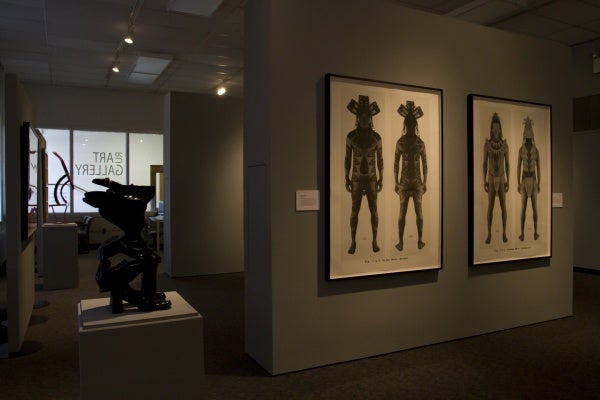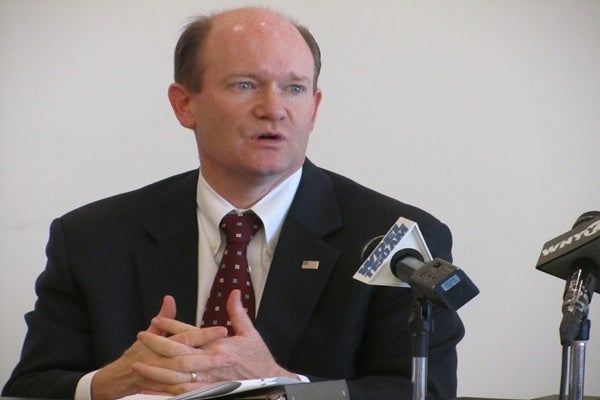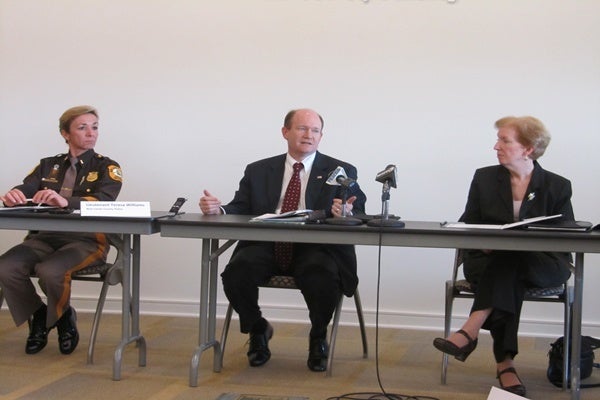Delaware advocates press for reauthorization of Violence Against Women Act
Delaware police agencies, court personnel, and support groups for families and individuals affected by domestic violence state their case for continued funding of the Violence Against Women Act.
Reauthorization of the act in its current form is threatened as lawmakers in Washington debate the continuation of a number of programs amid rising government spending and increasing debt.
The Violence Against Women Act (VAWA), which is nearly 20 years old, was championed by Vice President Joe Biden during his time as Delaware’s U.S. Senator. Biden’s successor, Senator Chris Coons, invited stakeholders to an open discussion Tuesday at New Castle County Police headquarters.
About one-third of complaints received by New Castle County Police in an average year are domestic-related, according to Lieutenant Teresa Williams. She added that funding from the Violence Against Women Act has provided digital cameras which have been useful in investigations, allowed the county to designate special advocates for victims in domestic cases, and provided valuable training for officers in how to handle domestic crimes.
Lewes Police Chief Jeffrey Horvath, Chairman of the Delaware Police Chiefs Council, said the investment and training “has made us better police officers.”
“The challenge is prioritizing which areas of the federal government we will cut, and which areas of federal activity we will reduce,” Coons said. “There are other areas in the federal government where I think we can and should reduce our expendutures. This is not one of them.”
VAWA was required to be reauthorized every five years. Delaware Coalition Against Domestic Violence Executive Director Carol Post said continued funding is important as new officers need to be trained, as well as prosecutors, court personnel and advocates. Also, Post said new issues are always coming up regarding domestic violence in the immigrant population, among persons with disabilities, and in the gay and lesbian community. “We have much more work to do in helping individual communities and people with differing backgrounds and belief systems – at the same time that we need to continue to reinforce all of the work we have done over the last almost 20 years,” Post said.
Additionally, the Violence Against Women Act funded a national hotline which gets an estimated 300,000 calls a year.
WHYY is your source for fact-based, in-depth journalism and information. As a nonprofit organization, we rely on financial support from readers like you. Please give today.




















